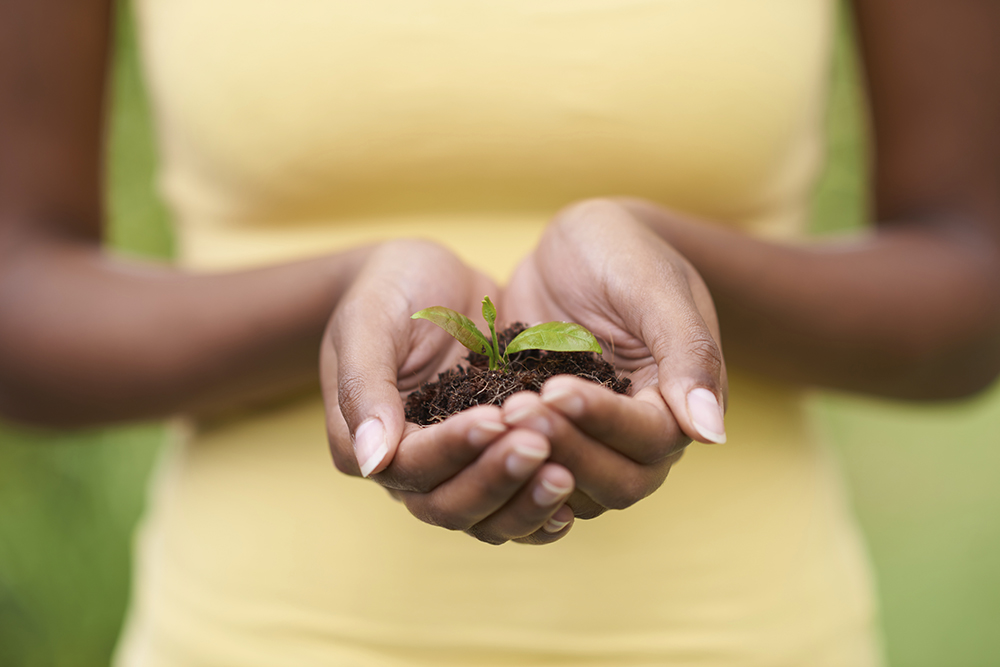How to do your bit to help save the planet
What we can do to save the environment together? David Bramwell interviews Eden Project maverick Sir Tim Smit...

The artist Man Ray once said: ‘The world is full of wonderful craftsmen but there are very few practical dreamers.’
Sir Tim Smit is someone who could easily be described as both. A polymath fuelled by tenacity and courage, he has a CV that ranges from crafting songs for major artists to restoring the Lost Gardens of Heligan in Cornwall, creating the hugely successful and much-lauded Eden Project in the same region, and being a motivational speaker of international renown. These days, he is in the process of setting up new Eden Projects in different parts of the world.
But despite his passion for – and commitment to – the environment, with his trademark humour and bluntness, Smit describes most environmentalists as ‘the last people he’d want to be stuck with on a desert island’.
Here, we talk to him about what he thinks we can do to save the world.
Are there still misconceptions about climate change in the West?
The evidence that we’re contributing to global warming is incontrovertible. The problem is that humans don’t think long term. We don’t see climate change as a steady changing state. We expected more extreme weather: hurricanes or floods, that the world would collapse and we’d return to the year one billion BC.
That’s not how it works. In a heating world, the ground is baked. Water falls on a baked earth and washes the soil away. It’ll be the displacement of people that will be the point of conflict. If Bangladesh floods really badly, people will go en masse to somewhere dry: north to China perhaps. Unless we’re careful, there’ll be war everywhere over water.
So how do you feel about this year’s climate change conference?
I think there’ll be some useful agreements made about reducing emissions, but governments remain unbelievably inarticulate at getting the message out that tackling climate change is worth doing. They don’t encourage significant investment in renewable energy.
Some of us try to do our bit by avoiding flying, etc, to help reduce our carbon footprint. Others say there’s nothing individuals can do if countries like China ignore the agreement. What do you think?
We have a story in the West that countries like China and India are not contributing. We are in the process of building an Eden Project in China right now. The young Chinese know that they’ve ruined their environment. They’re open to collaboration and want to put energy into cleaning up their water and soil. They know if they don’t, they’ll end up losing the wealth they’ve gained. The great irony is that if we’d led the way with addressing climate change in the West through real investment in alternative energy, we’d now be selling the technology to China. In fact it’s the other way around; most solar panels are made in China.
But we need to be wary of the idea of carbon footprint. In a very ‘male’ way, the climate change debate focused very quickly on carbon because accountants can measure carbon output. Many NGOs and environmentalists now concur that the way to save the environment is by showing the cost if we don’t. As
if we need to put a cost on a tree putting oxygen back into the air!
Why aren’t politicians doing more?
Virtually all global governments are still in the thrall of fossil fuels. In America, you also have a situation where the Republicans believe if they accept global warming, there will be more red tape. This has nothing to do with a denial of the science, but a fear that responding to climate change will cause restriction on liberty.
The scary thing in Britain is the lack of any political vision for the future. British politics seems to be an iterative series of aspirations: drop income tax by something, get the crime rate down. Most people are hungry for some meaning, but politicians will never change anything. They just respond to what they think the public want.
So what can we do as individuals?
We need to remember it’s about simply caring for our world, not about an economic transaction. If every human on earth planted 100 trees, we’d have no problem with climate change. We need more movements to stand up to politicians. We can do this stuff.
You believe change is more likely to come at grassroots level?
Yes.
How?
We keep forming groups. When people see other people they admire doing cool stuff, they join in. In New Zealand recently, I witnessed 200 people turn up for a tree-planting day; children, parents, teenagers – all showed up, and there were live bands. I thought this was a one-off, but they do it every weekend! This is the kind of stuff we can do. We’re smart social creatures – we can win this battle.
Another way to save ourselves is to write stories about the loss of meaning in our lives if we don’t save the environment. The problem with environmentalists is that they are rubbish storytellers. They said by now that the planet would be overrun by people and all our forests and fossil fuel would be gone. It doesn’t happen at the scale they tell it. It’s all a bit like ‘the boy who cried wolf’.
So who should be telling these stories then?
Writers, filmmakers, artists. In New Zealand, I spent time with the Maoris. We romanticise their culture by looking at their war canoes and totems, but forget that they also burned the middle of the island to a cinder and killed every major mammal on it.
The amazing thing is they realised what they’d done and started to repair it. Our Western culture has not civilised itself yet to repair the damage it’s done. The Maori example is an important story that needs to be told. Keep the pressure on politicians for sure but, as individuals, we need to form groups, create campaigns, tell stories. This is where real change can begin.
HERE'S HOW YOU CAN GET INVLOVED:
- Set up a Facebook page or join one: for example, Climate Campaigner, Climate Action Campaign
- Set up a blog or follow one: for example, blog.greenamerica.org
- Create your own campaign on home.38degrees.org.uk
- Find a local activist group: for example, look on 38degrees.org.uk
- Get your office to sign up with sustainabilty experts Planet First which works with the Eden Project: planetfirst.co.uk
Photograph: iStock








